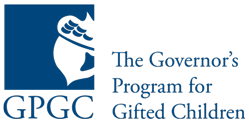Most of our afternoon classes don’t lend themselves well to weekly reports – the students are learning songs to sing in Chorus, the music and dancing (and roller skating!) in Musical, their lines and blocking in Drama, etc. We are looking to do at least one in-depth post over the summer about each one of those classes but for now, here are some reports from the few afternoon classes for which a weekly check-in makes sense.
Understanding Biology (Daniel Chester, Instructor):
Week 1:
In the first week the class volunteered ideas for later class material and learned much of the basics of molecular biology. The fundamentals of DNA replication and RNA production were stressed with emphasis on the scientific contributions of Watson, Crick, Rosalind Franklin, Chargraff, and Avery. The “RNA World” hypothesis was introduced and towards the end of the week we began the “bone project”
Week 2:
In week 2, students assigned to groups of 3 or 4 chose a human bone and learned about the muscles and nerves that attached to it. Later they presented their findings to the rest of the class and took a brief quiz on bone histology and anatomy. We then transitioned from bone structure to the nervous system and learned about neurons and the synapse as well as simple reflex arcs. Neuroanatomy was briefly introduced and the students seem very eager to learn about the more complex workings of neuroscience to be covered early in week 3.

Students ponder a bone and its place in the human body.
Critical Thinking (Jessica Markstrom, Instructor):
Week One:
This week the students took a personality test that allowed the instructor to see what types of traits they had (e.g., shy, leader, etc.) in order to place them into teams. We played numerous games in the course. The games ranged from word association games (Anomia) to zero sum tactical games (Abalone, Chess, Hippos and Crocodiles, Stratego, Ticket to Ride, and Twixt). Spatial games (Blockus, Set, Tsuro), word games (Bananagrams), and odds games (Zombie Dice) were also introduced to the class.
Week Two:
This week was puzzle week in Critical Thinking. The students were challenged with various puzzle activities. One activity had each team putting together a 1,000 piece puzzle during the period. Another activity involved non-traditional 3 dimensional puzzles including placing odd shaped blocks back into cube-shaped box, a slide puzzle that was rectangular in shape in that students had to match the pattern and color on each side, and Cool Circuits (a spatial puzzle game regarding patterns and resource allocation). The students had a packet of puzzles that included brain teasers, geometric puzzles, an extremely difficult sudoku puzzle, and mazes. Another day of puzzle week included logic puzzles.
Debate (Jessica Markstrom, Instructor):
Week One:
Students covered Aristotle’s tenants of persuasion and were taught proper debate notation skills (i.e. flowing). Students were able to identify the 3 different types of debate resolutions (i.e., fact, value, and policy) and were able to write debate resolutions before the end of the week. The prima facie burdens were introduced and students were able to collaborate to write an affirmative position as a class.
Week Two:
The students were able to identify the prima facie burdens as well as the parts of a plan during in-class activities. The students engaged in mock debates in order to encourage the development of speaking skills. Negative on-case argumentation types, such as “turns” and “take outs,” were introduced. Students engaged in a second mock debate in which one student wrote and delivered an affirmative case and the other student provided negative refutation to the case.
Comments


